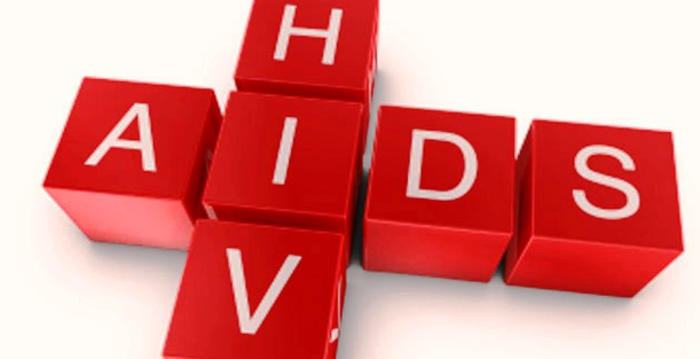
During the last decade diagnosis rates for HIV in the United States have fallen by around one-third and now stand at 16 cases per 100,000. While this is very promising news and an indication that strategies to prevent the spread of infection have been effective, a recent survey of American teens shows that they are poorly informed about HIV and as a result are potentially at risk of contracting this s*xually transmitted infection. The findings of this research by the MAC AIDS Fund may help to explain why almost 40% of new cases of HIV in the US occur among young people and 15 to 24 year olds are the only age group to experience a rise in HIV diagnosis rates. Without further education of teens on the subject of HIV transmission and prevention, there is a real risk that the human immunodeficiency virus may once again infect a growing number of people.
Key Findings of the Survey
When a sample of 12 to 17 year olds were questioned about their knowledge of HIV and their attitude towards infection, the study revealed that:
- Almost 90% of teenagers don’t think they are at risk of infection
- Around one-third don’t realize that HIV is transmitted through s*xual activities
- Knowledge of preventing the spread of infection is limited, with less than half appreciating that having multiple s*xual partners is a risk factor
- 93% would be nervous to discover whether they were infected
- The majority would feel scared or ashamed if they were diagnosed with HIV
- Just under half admit they would treat a friend with HIV differently
Underestimating the Risk of HIV
The fact that so many teens to not think they are at risk of HIV is likely connected to their poor knowledge of how HIV is spread, particularly as a significant number do not appreciate that it is an STI. As the CDC’s youth risk behavior surveillance shows that close to half of young people aged 14 to 19 are s*xually active, this indicates just how many teenagers have underestimated their risk. Their lack of knowledge will impact on their decisions when it comes to s*x and other behaviors that have the potential to expose them to infection. Indeed, the CDC report shows that just 59% of s*xually active teens use c*ndoms, with more than 40% risking STDs if their partner has not recently been tested.
Poor Knowledge of HIV Prevention
When asked how they could reduce their risk of HIV, c*ndom use and abstaining from s*x were the most frequent responses. Fewer teens appreciated the importance of a regular STD test, even though yearly screening is recommended for anyone under 25 who is s*xually active, owing to the high rates of infection in this age group. More worrying was that only 47% could identify staying in a committed relationship as a means to protect yourself against HIV and just one-third were aware that avoiding alcohol and drug use was another way to safeguard your s*xual health, as these behaviors increase risk taking such as having unprotected s*x. With the majority of teens unable to correctly identify the range of steps available to protect themselves from HIV transmission, this clearly shows that further education is needed among this age group.
Barriers to Getting an HIV Test
As a previous report by the CDC showed that around 60% of young people who test positive for HIV have no idea, this strengthens the case for routine STD testing, as just 12% of s*xually active teens have ever had an HIV test. However, as this latest survey of teens shows, there are various barriers to taking an HIV test. As already mentioned, little more than half of teens realize that a regular STD test can protect their health by identifying infections early. However, anxieties around a possible diagnosis can also stand in the way of getting tested. For instance, over 90% of teens highlighted they would feel apprehensive about taking a test, which may dissuade them from going ahead with screening. As so many teens still feel there is a stigma associated with an HIV diagnosis, stating they would feel frightened or ashamed if that was them, it is not surprising that these anxieties exist. Greater education on all aspects of HIV, including that it is now a very manageable infection, can help to break down the stigma attached to HIV.
Challenging Negative Attitudes About HIV
Wider HIV education helps to dispel common myths and misconceptions about the virus. This isn’t just important for helping young people safeguard themselves against infection, by appreciating which behaviors do and don’t put them at risk, but can also protect people with an HIV diagnosis from discrimination and make sure they have the support they need. The MAC AIDS Fund survey certainly showed that misconceptions do exist among teens today and that these may stand in the way of fair treatment and understanding. For example, just 51% of teenagers would treat a friend with HIV no different than anyone else, with almost a quarter reluctant to share a drink and 13% worried about having any physical contact with them. Furthermore, less than 40% of teens would think to spend more time and provide a listening ear for a friend who was HIV positive.
Positively, around 60% of teens surveyed identified the importance of education for preventing the spread of HIV, though only around half would want to discuss the subject with a parent or teacher. The availability of online resources to provide trusted information on s*xual health that is easily accessible to teens is therefore essential. Organizations such as the CDC and American s*xual Health Association already produce targeted resources, but MAC is developing a video, entitled “It’s Not Over,” to raise awareness of HIV and its prevention.
Article courtesy of KwikMed.org
http://www.kwikmed.org/american-teens-unaw...
 Posted By: Reginald Culpepper
Posted By: Reginald Culpepper
Tuesday, January 6th 2015 at 6:36PM
You can also
click
here to view all posts by this author...